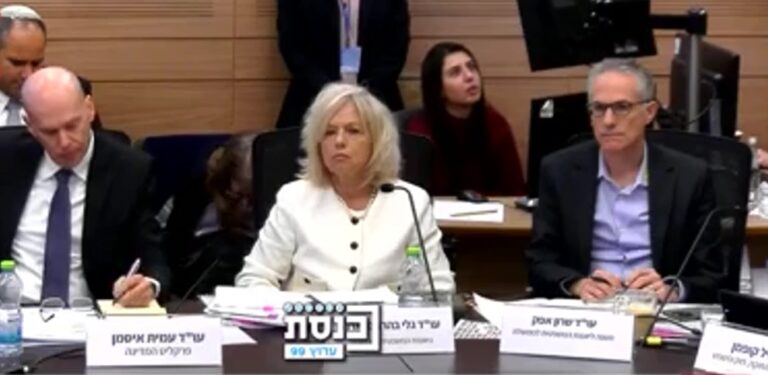 [By Rabbi Yair Hoffman]
[By Rabbi Yair Hoffman]
This past week a terrible tragedy occurred in Scotland regarding a medical doctor. It seems a doctor who was moonlighting did not inform his hospital that he was working another job. On account of his over-tiredness, he did not check that a patient was overmedicated. Nor did he check on the patient. The patient died, unfortunately. This incident highlights an important point in halacha.
The Bureau of Labor Statistics informs us that last year seven million American workers were working multiple jobs. Out of a total employed workforce of 144 million in this country that means that one out of 20 people at work are actually working double jobs. The question is: Are there any obligations from a halachic perspective that these workers have to their day-job employers? Indeed, is having the extra job permitted in the first place?
It is also interesting to note what types of jobs most people have as their second job. Some babysit, others bartend. Some cater. And many run an internet website (more on this as the article progresses).
There is a fascinating Tosefta in Bava Metzia (8:2) which tells us that a worker is not permitted to perform his own work at night time and then hire himself out for work in the daytime. The Tosefta thus introduces a fiduciary obligation placed upon the employee to his potential employer to make sure that he is sharp and alert for the work that he is to be hired to do. The Shulchan Aruch (CM 337:19) quantifies this as the halacha.
Rabbi Ben Zion Meir Chai Uzziel, the first Sefaardic Chief Rabbi of Israel, writes in his Piskei Uziel (Sheilot HaZman #46) that this same legal theory also obligates the worker must also have a pleasant attitude in demeanor to his employer, fellow employees, and customers or clients.
Dayan Blau zt”l in his work “Pischei Choshen” (chapter seven) discusses a case where a fundraiser for one institution that paid for his travel expenses travels to America to raise funds and he moonlights for another institution. Dayan Blau forbids the practice. He similarly forbids other similar activities as well.
Aside from this, however, most employers nowadays have a published policy or handbook. Some of them do have formal policies on moonlighting. If so, then there is a halachic obligation to abide by this policy in addition to the halachic requirements. This is also prudent in New York State which happens to be an “at will” employment state where employees can be terminated at any time when faced with no employment contract.
There is, of course, an exception to moonlighting,at night when it is clear that the employer is not paying the employee a full-time salary, or when the employee is only part time. Then it would be understood that the employee needs to make another salary in order to pay the bills.
Many of the aforementioned moonlighters have their own business as a second job. There is a huge Yetzer HaRah to use the equipment and supplies of the day-job employer for this purpose – even if one only “moonlights” on the lunch or coffee break. This too is forbidden and is looked upon as theft in the eyes of halacha. If one needs to access the web for something not related to job #1, one should either bring one’s own iPad or ask explicit permission from the employer. Merely assuming that the employer would not mind is not sufficient. Also, the wifi connection itself may be problematic if it is not open to the public.
The Talmud (Bava Basra 88a) cites a debate between Rabbi Yehudah and the Chachamim as to whether one who borrows without permission has the status of a borrower or that of a thief. The Chachamim view him as a thief. The Rif, the Rambam, and the Shulchan Aruch all rule in accordance with the Chachamim.
The language that the Tur Shulchan Aruch uses (C.M. 359:5) is “Nikra gazal—he is termed a thief.” The question is whether this term is referring to a Biblical prohibition or a rabbinic prohibition. The Gemara (Berachos 6b) invokes this same expression to describe someone who doesn’t respond to a “hello”; if someone says hello to the other and the other does not respond, he is called a thief. Clearly in that case, this cannot be a Biblical notion, as there is no actual theft of property. This would indicate that the term only describes a rabbinic prohibition and not a Biblical one.
The Smah, however, one of the foremost commentaries on the Tur Shulchan Aruch, indicates clearly that he views the Tur’s words as indicating a Biblical prohibition (see note 12 on the Tur).
But wait! There is nothing missing here! How could he be considered a thief? He is a thief because he took without permission, even if there is nothing missing. The Rashba (Bava Metzia 41a) states this quite clearly, as does Rashi.
Often an employee may rationalize the amount of time spent on the computer as not being excessive. One must ask oneself the following question, however: Who is more likely to consider something as not being excessive—the employee or the employer? One does not have to be a rocket scientist to realize that the employer would be more likely to consider something as excessive than would the employee. And unfortunately for the employee, the ball is in the court of the employer on this one.
The second factor is the fact that it is being done on company time. In this regard, there are two types of employees: management-level employees and hourly employees. Clearly, an hourly employee would be illicitly taking money from his employer for any minutes beyond excessive that he has spent infosnacking on the Internet. (And no, the non-excessive minutes are not cumulative.)
A management-level employee who receives a set salary to make sure that a department runs efficiently may have more leeway in this regard, but it would still depend upon the employer. It would seem that there is an obligation to find out where one’s employer stands on such issues.
The author can be reached at [email protected]










